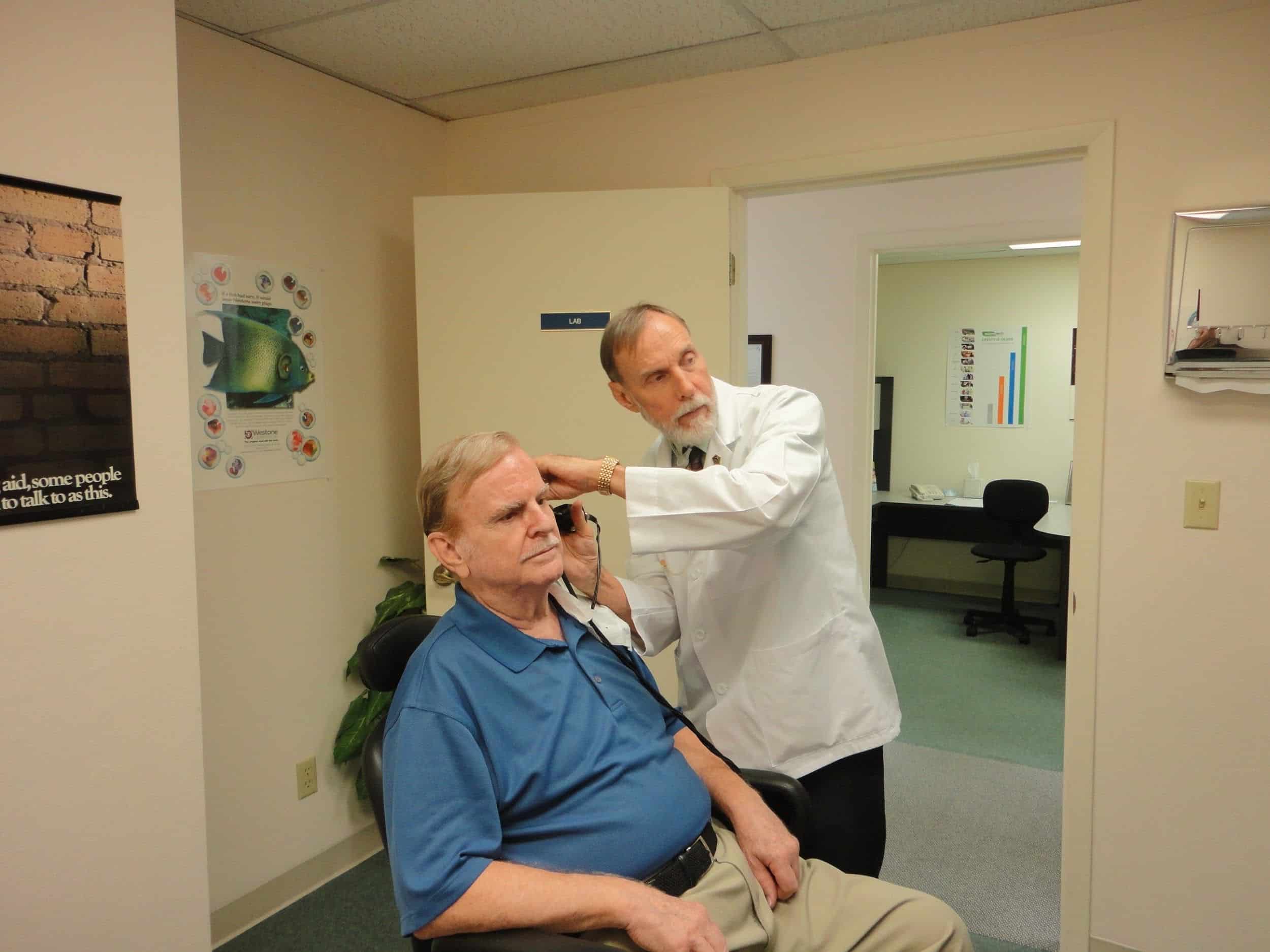

Welcome to Diabetes Prevention Thursdays! Today, let’s talk about diabetic complications that promote research and development. Diabetes is a long-term condition that can possibly be reversed in some cases, and in other cases, it can be managed more efficiently to avoid potential complications. Learning about the dangerous complications of diabetes can help you take precautions to prevent these bad outcomes.
The journey to better quality health starts with knowledge.

Potential Complications of Inefficient Diabetes Management
Many complications are shared between type one diabetes (T1D) and type two diabetes (T2D), even though they’re different conditions. Both conditions can cause increased levels of blood glucose, which is very destructive over time.
Cardiovascular Problems
Persistently high blood glucose levels deteriorate your arteries, leading to cardiovascular problems. The European Cardiology Review published a paper confirming the correlation between T2D and hypertension.
Arteries become narrowed and hardened, which is called atherosclerosis, and pressure builds in the arteries to keep blood pumping to vital organs. The problem is that over time, the organs become unable to manage blood pressure this high.
Diabetes is also responsible for the increased production of low-density lipoprotein (LDL) cholesterol, which is the bad cholesterol that builds plaque in your arteries, deteriorating them even further and contributing to high blood pressure.
This plaque development in the arteries contributes to the risk of heart disease and hypertension.

Neuropathy and Other Nerve Damage
The tingling sensations and numbness in your hands and feet are called peripheral neuropathy. Over time, uncontrolled diabetes causes damage to the small capillaries, which supply nerves with nutrients. The nerves become damaged due to decreased blood supply and nutrients, leading to the condition of neuropathy. It’s a very unpleasant complication.
Autonomic nerves connect every organ to the central nervous system (CNS) so that the brain can communicate with the organs and vice versa. These nerves are also subject to damage in patients with uncontrolled diabetes.
Autonomic neuropathy can impact the organs in your body, including the way they function. An example is the complication of an irregular heart rhythm caused by damage to the autonomic nerves connected to the heart.
Chronic Kidney Disease (CKD)
Uncontrolled blood glucose can also damage the small blood vessels in your kidneys, causing CKD when the kidneys can’t function and filter waste efficiently anymore.
Gastroparesis
Gastroparesis is a problem where the stomach is malfunctioning. The cause is uncontrolled diabetes, which damages the vagus nerve, the nerve supply to the stomach.
The stomach no longer properly moves food down the digestive tract and stalls your digestion.
Tooth Decay
Tooth decay isn’t only ignited by eating refined sugars. It’s also increased when the blood vessels intended to provide nutrients to the gums are impaired by high levels of blood glucose.

Vision Interference
Diabetes and persistently elevated glucose levels can interfere with or damage your vision. You can suffer from:
- Glaucoma, which happens when pressure builds within your eyes
- Cataracts, which is the clouding of your eye lens
- Diabetic retinopathy, which happens when the blood vessels behind the retina become damaged
- Complete blindness
Stroke
Blood vessel deterioration and associated hypertension from diabetes can increase your risk of stroke. According to the American Diabetes Association (ADA), your risk of having a stroke increases one and half times if you have diabetes.
Foot Ulcers
Mismanaged glucose levels can lead to foot ulcers over time due to decreased circulation and nerve damage. Even worse, injuries to your feet can cause infections that could lead to gangrene and possible amputation.
Depression
It’s easy to feel overwhelmed when you have to monitor your glucose and ketone levels, and depression often follows overwhelming stress. A lack of knowledge and the constant flow of stress hormones may cause depression in diabetics.
Hearing Loss
Uncontrolled diabetes can lead to trouble hearing, according to the American Speech-Language-Hearing Association (ASHA). Blood vessels and nerve cells are everywhere, including the ears.

Dementia
Dementia is a degenerative disorder of the brain affecting memory, attention, and cognitive processing. The Alzheimer’s Association has seen an increase in the main type of dementia in diabetic patients.
The brain is comprised of multitudes of nerve cells, and high levels of glucose and insulin can damage these cells over time. Insulin can also harm the balance of hormones the brain needs to function properly.
High glucose levels encourage inflammation, which further damages the brain leading to additional difficulties with cognitive function.
Skin and Mouth Problems
Bacterial and fungal infections of the skin and mouth are common if T1D isn’t under control.
Pregnancy Complications
Uncontrolled diabetes is a dangerous condition during pregnancy. It can lead to miscarriage, stillbirth, and birth defects.

Ketoacidosis
Ketoacidosis is a dangerous shortage of insulin and overproduction of ketones, which are released from fatty acids in the liver when T1D is uncontrolled or undiagnosed. The body turns to fat for energy when there’s no insulin left for energy conversion.
Too many ketones can cause acidity in the bloodstream, leading to a life-threatening condition called diabetic ketoacidosis if not treated immediately. T1D people should never willingly induce ketoacidosis.
Food For Thought
Every condition comes with potential complications, but it’s up to you to manage your diabetes carefully. Great advancements are being made to better manage T1D.
T2D patients can rely on supplementing their medication with lifestyle choices and better diets.
If you would like to receive a free resource sheet to help you take control of diabetes, click the button below to receive your gift.
I wanted to talk about this topic because it is absolutely possible to prevent and even reverse Type 2 Diabetes (but you cannot reverse Type 1). Yes, it’s possible! and emerging studies looking at lifestyle medicine and prevention support this! But I always tell my patients that you must be dedicated and diligent in adopting a healthy lifestyle to get the best results. You can create certain behaviors and practices that will not only enrich your life, but that you can pass on to your family, friends, and community, to help break the cycle of this chronic disease so that you can leave a legacy of health to your loved ones.
I use functional medicine and lifestyle medicine as the first line of treatment, before medications, to treat lifestyle-related chronic diseases. Lifestyle-related chronic diseases include diabetes, hypertension, obesity, and some cancers, just to name a few. Lifestyle practices, such as eating a low glycemic, whole-food plant-based diet and regular physical activity, can help you improve your blood sugar levels, maybe reverse type 2 diabetes. In certain cases, these approaches may even outperform pharmaceutical therapy.
But I always tell my patients that conventional medications may be appropriate at this time to prevent catastrophic illness, but over time, you can work to make the necessary lifestyle changes to possibly reduce and/or eliminate medications. Please remember to always consult your physician for your particular needs and circumstances prior to making any decisions whatsoever.
Is Dietary Supplementation Right For You?
When it comes to managing your blood sugars (in general), pre-diabetes, and diabetes, there are many things that you can do to help control your blood sugar levels. One important aspect is diet. What you eat affects your blood sugar, so it’s important to be mindful of what goes into your body.
But it is very important to note that we are not eating the same foods we ate years ago because the soils have been depleted of critical nutrients through current industrial farming practices. And because the soil is not as good as it used to be, the food supply (grown from the depleted soil) is not as good as it used to be. For example, you are not getting the same levels of chromium and magnesium as you would have gotten 30 or even 50 years ago.
Second, much of the food has been processed and genetically altered, which can impact the inherent and unique nutritional composition that each food possess. For example, ancient einkorn wheat has less gluten, more protein, more Vitamin A, and more beta carotene, than modern genetically modified wheat.
Third, the toxic load in the environment today is much higher than 100 years ago. We can see this with global warming, toxic landfills, polluted oceans and waterways, etc. Toxicity levels interfere with nutrient assimilation and absorption not just into the foods, but into our bodies as well. We often see elevated blood sugar levels with poor nutrition and toxicity.
In addition to diet, there are dietary supplements that can have an impact on blood sugar levels. Dietary supplements for diabetes are becoming increasingly popular as people look for ways to improve their blood sugar control.
For some people, vitamin and mineral supplements offer important health benefits. Supplements are designed to fight deficiencies found in our diet and complement the food we eat regularly. Supplements are basically “helping hands” to our daily food.
If you suspect that you aren’t getting the nutrients you need, consider shifting your focus from supplements to eating better.
And if you are unable to eat better, the supplements in my Blood Sugar Support Bundle may provide the extra boost you need.
These are my favorite Diabetes Prevention Supplements to use! This Blood Sugar Support Bundle will ensure you have the intake of the important vitamins, minerals, and probiotics to decrease inflammation and boost your innate wellness day and night. Taken together, it’s a solid plan for increasing your body’s natural resiliency while encouraging healthy blood sugar levels.
For best results make sure you use these supplements with dietary changes including a whole food plant-based diet, regular exercise (at least 2-3x per week), regular sleep (8 hours per night), and intermittent fasting (at least 1-3x per week).
It’s important to note that supplements are NOT a replacement for your regular medication regimen prescribed by your doctor. However, they can be used in addition to help manage your blood sugar levels.
Supplements have the potential to interact with diabetes medications, so it’s important to speak with a healthcare provider before starting any new supplement regimen. Have you tried any dietary supplements for your diabetes? Share your experience in the comments below!
Tools For Diabetes Prevention and Monitoring
Blood Sugar Monitoring
As you know, I always stress the importance of taking control of your health. Monitoring your blood sugar levels is one of the best ways to do this. To do this, a single drop of blood is collected with disposable lancets and placed on a disposable test strip, which you insert into a home blood-sugar monitoring device, called a glucometer.
The common times for checking your blood sugar are when you first wake up (fasting), before a meal, 2 hours after a meal, and at bedtime; however, you should check your blood sugar as many times a day as your health care team suggests.
Monitoring your blood sugar level provides you and your doctors with important knowledge about how food, activity, medication, stress, and other elements might affect your blood sugar levels. This data will assist you and your doctor in developing a therapy plan that is suited to your demands.
There are several types of blood glucose meters, lancets, and test strips to choose from. I often recommend this glucometer, lancets, and test strips.
Weight Monitoring
Since weight management is very important in combatting chronic diseases such as diabetes, I recommend that you be mindful of your weight and its fluctuations, and that you monitor your weight AT LEAST on a weekly basis. I recommend a scale that includes a body composition monitor (*this scale cannot be used with a pacemaker or other implanted devices).
Physical Activity
Physical activity (or exercise) can improve your health and reduce the risk of developing several chronic diseases like high blood pressure, type 2 diabetes, and cancer, just to name a few. Physical activity actually improves insulin sensitivity. Physical activity can improve your mood, boost your immune system, and even help you maintain a healthy weight.
I often recommend yoga and resistance training for physical activity, but as you are aware, there are plenty of forms of “movement” that you can do! But for the basics, especially if you’re just getting started, yoga and resistance training are where I would start.
Yoga
Yoga can be a great way to improve your strength and flexibility, manage your stress, improve your heart health, and lose weight! I recommend using this yoga mat to get started with your yoga practice today!
Resistance Training
Resistance training is the mainstay for overall health. It not only has beneficial effects on reducing body fat, it also increases muscle size and strength. Here are some basic resistance bands that I recommend to everyone. They are great for physical therapy, yoga, strength training, and excellent for traveling.
Food!
Remember, living a healthy lifestyle including eating a whole foods plant-based diet and regular physical activity are the best ways to prevent diabetes.
The Diabetes Meal Plan is geared towards those people with diabetes or prediabetes. The foods are moderately low in carbs, low glycemic, fiber rich, and contain a balance of nutrients to help prevent blood sugar spikes and dips. Foods are also included that may help to lower blood sugar.
Please talk with your doctor about any complementary health approaches, including supplements, you use.
Dr. Nicolle Martin
Some of the links in this article are "affiliate links", a link with a special tracking code. This means if you click on an affiliate link and purchase the item, we will receive an affiliate commission.
The price of the item is the same whether it is an affiliate link or not. Regardless, we only recommend products or services we believe will add value to our readers.
By using the affiliate links, you are helping support our Website, and we genuinely appreciate your support.
Last updated on January 28th, 2022 at 03:29 am

Minimize Medications. Maximize Health.
Are you super busy but need to take control of your health? Are you tired of being tired? Subscribe to my “Minimize Medications, Maximize Health Blog” and I’ll give you 7 Tips to Get Healthy in No Time absolutely FREE.







